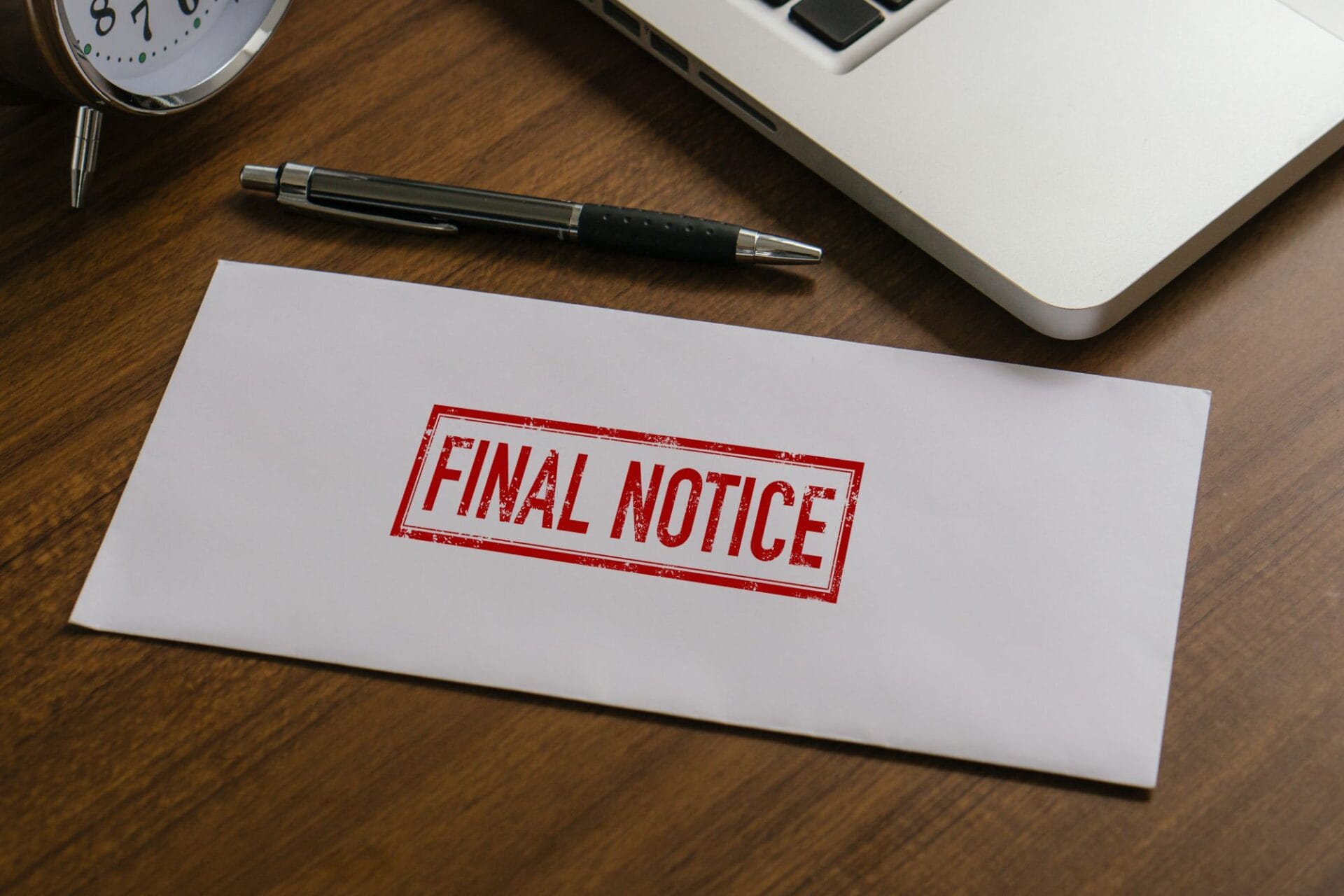Condo and HOA communities are non-profit organizations, meaning almost all of their revenue comes from owner assessments or dues.
Associations need owners to make their payments on time. Otherwise, they may be forced to increase assessments, levy a special assessment, reduce services, or take out a loan.
Download our free collection policy template
Even a few late payments can have a negative impact on the community, which is why boards are given certain powers to collect delinquent payments. For example, in extreme cases, the association may file a lien or even foreclose on a home.
But before the board gets there, there are less severe measures it can take to resolve delinquent payment issues. A detailed collection policy won’t necessarily prevent owners from making late payments, but it will give all parties a clear roadmap of what to expect and do after someone fails to make a payment on time.
Table of contents
- Enforcing the policy
- What is a collection policy?
- How do I make a collection policy?
- Do owners take collection policies seriously?
- What to include in a collection policy
What is a collection policy?
A collection policy is kind of like an instruction manual that condos and HOAs can use to collect unpaid assessments or other fees.
Having a collection policy is important because it establishes a standard for collecting outstanding fees. This enables board members to treat every case in a fair and consistent manner, and avoid selective enforcement.
How do I make a collection policy?
If your community doesn’t already have a collection policy, you can download our template for free. Alternatively, you can ask an attorney or your property manager to help the board create a policy for your association.
Most condo and HOA boards do have the authority to create and amend rules and policies without a vote from members, but check your governing documents just to make sure.
Once the board has a policy that it is happy with, make sure members know about it. The policy can be mailed, emailed, or posted on the association’s website. The board can also mention the new policy at member meetings or include it in the community newsletter, if applicable. Remember, owners can’t be expected to comply with any rules or policies if they aren’t aware that they exist.
Do owners take collection policies seriously?
Generally speaking, owners do take collection policies seriously. Not only does it explain what could happen if they fall behind on assessment payments, but it may also encourage them to reach out to the manager or board before the debt becomes unmanageable.

What to include in a collection policy
Condo and HOA collection policies will differ from one association to another, and must consider state laws in addition to existing CC&Rs and bylaws. However, there are a few things that are considered standard in every collection policy:
- A schedule of when fees are due
- A schedule of when fees are considered late or delinquent
- Details about late fees and interest that the association can charge against a delinquent owner
- Payment plan information, if applicable
- Information about who the owner can contact to dispute the delinquency
- Steps the association can take to collect unpaid dues
- Information regarding third-party service providers the association can hire to collect unpaid dues
Enforcing the policy
Enforcing any policy requires diligence and consistency from the board and/or property manager.
Actions must be taken as soon as an owner misses a payment. Often, that means flagging all late payments the day after they were due, and sending off a warning letter shortly after.
Someone must carefully follow delinquencies and advance the issue to the next stage if the owner has not reached out and has not attempted to pay the fee.
Unless your community is small, most condos and HOAs prefer to have some sort of digital system for collecting and tracking payments from owners. This makes it much easier to identify which owners are behind on payments, and how long they have been delinquent.
On a similar note, providing owners with an online payment option has been proven to reduce late payments, especially if there is a recurring payment option.
Below is an example of the collection process a board could follow:
1. Send a notice
Virtually every condo or HOA would start the collection process by sending a notice to the owner who has not paid their assessments. This notice will state the owner’s unpaid debt, any late fees or interest applied to the debt, the total amount due, and the deadline for payment. More often than not, owners will receive this notice and settle their outstanding dues right away.
However, if an owner ignores the first notice, they should expect to receive a second. The second notice will include the same information as the first notice, but this time the owner might be offered an opportunity to enter into a repayment plan agreement. There should also be information about what collection actions the association will take next should the debt remain outstanding.
2. Offer a repayment plan
If your board is hesitant about offering repayment plans, it’s not alone. But you should know that these plans often do more good than harm. They can give owners a way to make more manageable payments, and the association still gets the money it’s owed. The biggest downside is that it requires more work from the association, but your owners will be more cooperative and less hostile.
Some states are actually required to offer repayment plans. For example, in Colorado, associations must offer a payment plan with a repayment period of at least six months. Associations are not obligated to negotiate payment plans with owners who have previously entered into payment plans within a certain amount of time. However, the association’s governing documents and policies may have different requirements.
This law does not exist in California, but if an owner submits a request for a payment plan to their HOA, the state does require the association to at least consider the request. The association must also provide owners with the standards for payment plans, if any exist.
If an owner defaults on their repayment plan, the association can continue with the collection process.
3. Seek help from a third party
Associations can only devote so many resources to collecting late fees. After a set time, often 90 days, the board will pass the matter onto the association’s attorney, or a collection agency.
Collection agencies generally charge the association a collection cost, but attorneys don’t work for free either. Often, the condo or HOA will charge legal or collection fees back to the delinquent owner if state laws and governing documents permit it.
4. Attach a lien
An association may have the ability to place a lien on a delinquent owner’s property. Liens should always be recorded with the county recorder’s office as a formality, although some states require it. This will make the lien visible to anyone who conducts a title search on the property.
Liens don’t immediately impact the owner, but they can make it difficult for them to sell a home or refinance a mortgage.
Once the debt has been paid off, the association must release the lien by recording it in the county’s land records. Recording a lien comes with a fee, which the association can charge to the owner if the governing documents and state laws permit it.
5. Foreclosure
The process of foreclosing a lien depends heavily on state laws. Most states require associations to foreclose judicially. This will involve filing a civil suit and asking a judge to order a sale of the property.
Depending on where you are, foreclosure may not be possible until the owner is a specific number of months, or a certain amount of dollars, behind in payments.
An authorized official will perform the sale of the home, and the proceeds from the sale are used to satisfy the lien.
Conclusion
While it is necessary for associations to stay on top of delinquent payments, condos and HOAs are not debt collectors, and should never employ aggressive or abusive tactics for collecting unpaid assessments or fees. Instead, they are encouraged to use a detailed collection policy and seek help from a third party, such as an attorney, if an owner is unwilling to work with the association.






















